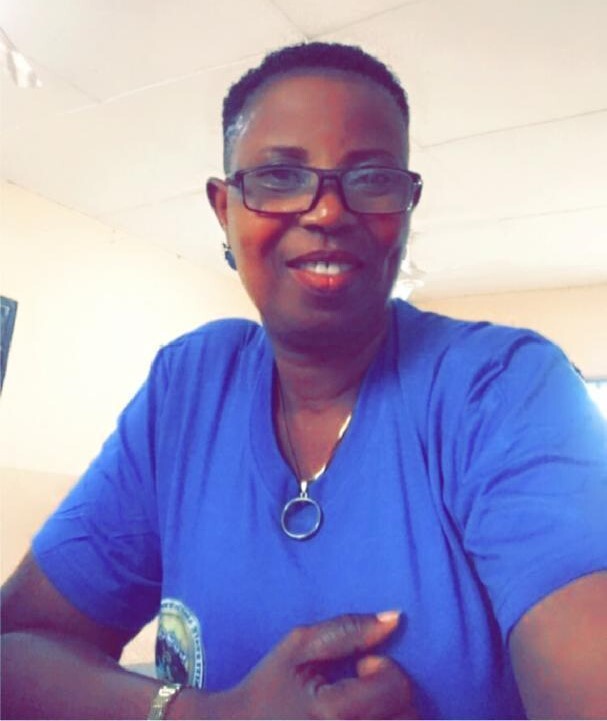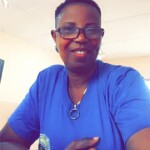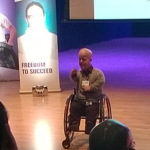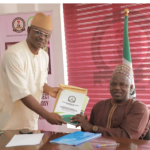Nigerian deaf women lack words to demand their sexual and reproductive health rights at primary health centres. And health authorities won’t even pretend to care
By Esther Olaifa
At 36, with three children in tow, Ibrahim Fatimoh knows nothing about contraceptives. And her hatred for it, in any form, won’t allow her to go for birth-control counselling at her Ibereko PHC, in Badagry, Lagos. She chose to only have her last baby there. “I had problem speaking with them there,” she told ER. That was her way of protesting health workers’ attitude when they couldn’t understand her—or communicate with her.
Sixteen other women like her ER interviewed in Lagos, Oyo, Osun, and Ebonyi in August are at various stages of their reproductive cycle. Blessing Nwode in Abakaliki has given birth four times. Others have two each. Like Precious Nwode who also said she doesn’t need birth control because she wants to have more. And Lizzy (not real name) is not particularly willing to have her sixth, despite pressure from her husband. Almost all of them felt the same about seeking abortion counselling.
Generally, all of those interviewed have had to grapple with sign language communication barriers while accessing family planning services at PHCs. This include about 30 percent who commended the health workers, and others scared of meeting them at the centres. One was Idenyi Nteyi in Abakaliki. She cut out because she had no idea what they were talking. Okediji Blessing, secretary, the Deaf Women Association of Nigeria (DWAN, Lagos) wouldn’t be surprised. In her experience, many of the sign language interpreters the PHCs commandeer once a while can’t even interpret medical terms.
The Discrimination Act 2018, the Lagos State Special People Law, and other states’ disability laws mandate special communication at all levels of health centres, to remove this barrier. Even the 2018 National Policy on Sexual and Reproductive Health and Rights for Women and Girls with Disabilities (NPSRHR WGWD) proffers its own 47 actions that aim at improving access and protecting rights.
But none of these seems to have occurred to many primary health workers (and their authorities) as anything of note. Nurse Oluchi at a PHC in Shomolu, Lagos, is still struggling to consider communication a barrier serious enough to demand primary health care workers’ attention. The NPHCDA and the Lagos PHC Board (LSPHCB) didn’t respond to ER’s official requests for interviews. Adebimpe Sangoleye, health financing programme manager, LSPHCB, however, said ‘domesticating’ the disability law provision requires its own funding, which is secondary for now.
All these are a reflection of society, according to Helen Beyioku-Alase, executive director, the Deaf Women Aloud Initiative. And Ejiro Okotie, founder, the Hope Inspired Foundation for Women and Youth with Disabilities (HIFWYD) agreed.
Although for Fatimoh, the prejudice is not enough to make her risk any unwanted pregnancy. As far as she is concerned, there is nothing like an unwanted pregnancy. “I have not been on any family planning method before,” she said, “and I won’t do it…because I don’t just like it.”
To her and most of the women, abortion, also, remains a dirty word—safe or not. It is, no doubt, in the larger society. And Beyioku-Alase noted it won’t be different in the deaf community. Only Wumi and one other revealed, with hesitation, they once sought abortion counselling at their PHCs in Oyo and Osun respectively. And the rebuff they got betrayed their confidences.
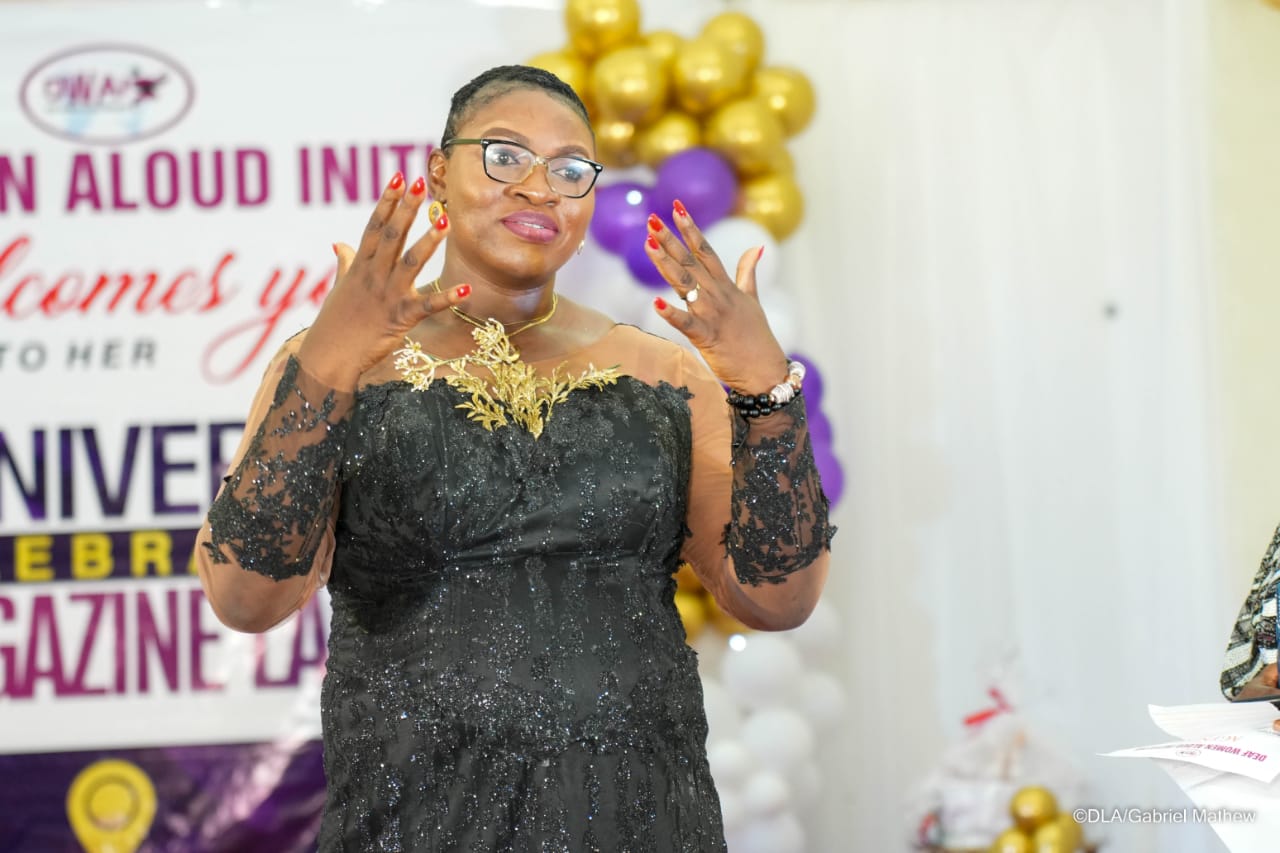
Beyioku-Alase
In their comfort zone, neither Fatimoh nor her husband has any expertise in sexual and reproductive health. But she insisted their method, self-control, is fail-proof. “To prevent an unwanted pregnancy, we depend on ourselves,” she said.
While she revels in her ignorance, many in the deaf community, and the entire disability community, have, nonetheless, attained some level of awareness about sexual and reproductive health (SRH). A 2022 report by Disability Rights Advocacy Centre (DRAC) revealed the awareness is even on the rise among women and girls with disabilities thanks to advocacy.
And the finding, by no means, invalidated the reality of the type of ignorance in which Fatimoh and others still carry on. The severity of such cluelessness has been actually documented.
Experts say hit-or-miss birth-control methods like hers have a 25-percent risk of failure, resulting in unwanted pregnancies.
The recent UN report on funding gaps in Nigeria’s sexual and reproductive health sector makes the consequences clearer. No fewer than 700,000 Nigerian women will end up with unintended pregnancies as a result of this. A United Nation Population Fund (UNFPA) specialist in SRH, Adeela Khan, revealed this at the last World Population Day event in Nigeria. About 300,000 of them will result in unintended births, and the same number in unsafe abortions.
Such state of being is a far cry from the Sustainable Development Goal 3 which seeks to: “Ensure healthy lives and promote well-being for all at all ages”. The achievement of this is at stake as Nigeria. Development experts believe the world’s most populous black nation struggles with an sustainable population crisis. And access to SRH has been projected as a right citizens, including PWDs, have to determine their wellbeing and standard of living.
It’s been five years since a major disability law and a policy framework on SRH came into force in Nigeria. For women and girls with disabilities, the rights and access at the primary health care level have become a mirage.
As long as this policy inaction continues to hamper the women’s well-being, their participation in any human development activity becomes difficult.
The elusiveness of the SRH rights stems from decisions Fatimoh, Blessing and others make based on what they know. And DRAC, in its finding, detected a chasm between what the women are aware of—family planning—and what they actually know.
“There was limited knowledge of SRHR services among the WGWDs,” Irene Ojiugo Patrick-Ogbogwu and four other authors of the report noted. “Almost half of them do not know about the male and female condoms, and their knowledge of other contraceptives such as injectables and implants was poor.”
The grey zone between this awareness and knowledge accommodates beliefs like Fatimoh’s: self-control, self-medication, risk-taking, and others.
“We know when we are ready for another child,” Fatimoh said. One of her Abakaliki counterparts insisted, “I know my cycle.”
The women might not have known this much had NGOs and other advocacy groups not intervened, according to the researchers. The NPHCDA and the state boards whose responsibility it is to enlighten the women on access and rights are a no-show, having failed in the basic: ensuring accessible communication for which section 23 of the Discrimination Act provides. The Act is about the only national law that caters, with a couple of provisions, to PWDs’ health. The major national health law, the National Health Act, never really spells out issues of disabilities.
“This the problem with our Nigerian system,” said Beyioku-Alase. “We make laws but won’t enforce them.”
Dtto for policies. The National Reproductive Health Policy and Strategy, the National Strategic Health Development Plan, the National Strategic Plan on HIV/AIDS— none of them deliberately includes issues of disabilities. What the government does, as the Nigeria Economic Summit Group, which drafted the NSRHR for the Federal Ministry of Health observed, is just to list PWDs among the targets.
Even the federal health ministry’s adoption of the only PWD-specific health policy has yielded nothing. Especially with regard to primary health care accessibility. In its policy actions under Thematic Area 2 (Improve Access to SRH for PWDs), the policy states the “Federal Ministry of Health as well as its supporting agencies: National Primary Health Care Development Agency… and others will ensure that communication materials and media are available in accessible formats to all PWD”.
But none of the over half a dozen PHCs ER visited in Lagos boasts a sign language interpreter. Adding sign language interpretation to nursing is a burden, Nurse Oluchi said. Other health workers told ER they attend to only deaf women who bring their interpreters. None of the centres keep any records of deaf women coming for routine care—let alone for family planning.
There are more than 300 of PHCs in Lagos alone, and over 34,000 across the nation. Sangoleye explained to ER that providing these centres sign language interpretation needs funding which isn’t a priority for Lagos. “And it can’t be overemphasized that funding is a big problem for the PHC system,” she said at a September workshop by Pathfinder International.
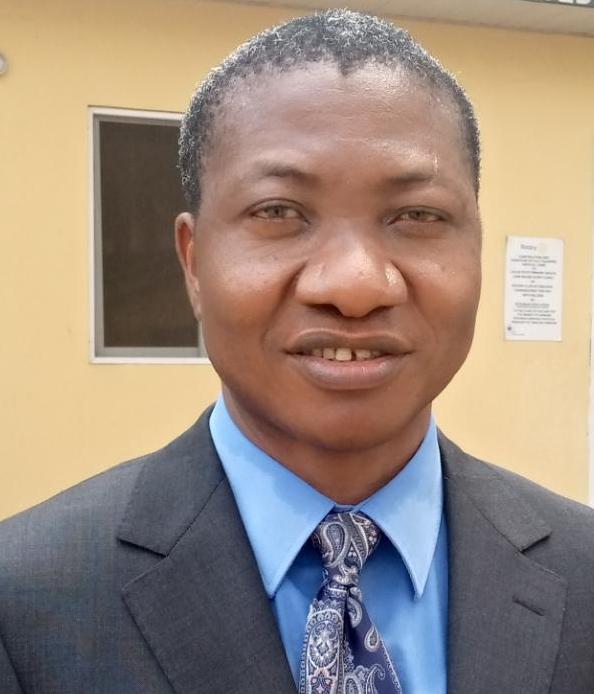
LSPHCB Perm Sec Ibrahim Akinwunmi Mustapha
The situation is no better elsewhere. ‘There is a total absence of mechanisms to address communication gaps for deaf women,” said Okotie whose advocacy covers the southeast.
At Ohaukwu in Abakaliki, Nteyi said she never understood them at her health centre. “I avoided going there for birth-control services because of communication,” she said. The mother of two didn’t swear off going to PHC. She did visit, but not for something as confidential as contraceptives or abortion.
Some nurses, after all, have their opinions about deaf women negotiating baby-making. Oluchi shrouded hers in ignorance. "It has never come to my mind that such people also need sexual and reproductive health [services]," she told ER.
Others convey theirs with a wave of hands. Pregnant Wunmi could hardly put a word in to explain to the nurses her own predicament: her partner who didn’t care about her rights to consensual and protected sex. “They said I should leave it like that,” she told ER. Her counterpart in Osun noted the harshness of their opinion of her. “Why do you sleep around with men you don’t love,” she recalled the primary health workers tell her.
It was typical.
“When it comes to SRH, women with disabilities, including deaf women, are deemed to be asexual,” said Okotie. “They don’t need information or services around family planning, not to talk about abortion.”
Communication problem, no doubt, escalates discrimination and stigmatization. And whatever decision the women make to beat this could jeopardize their well-being.
The UNFPA has no disaggregated data of the nearly one million women it estimates will be carrying unintended pregnancies in Nigeria. So there’s no way of knowing the percentage of those with disabilities, especially the deaf. Women like Fatimoh and others who don’t care about family planning, however, could grab a significant figure there. Just as they might when accounting for maternal deaths—540 women and children per 1000, according to a 2020 WHO report.
And those who survive childbirth aren’t without baggage: they, too, help swell Nigeria’s population that has been exploding for decades, at over 2 percent annually. That translates to over five million births every year, according to the National Population Commission. Nigeria’s population currently stands at 218.5 million, and will be testing 400 million by 2050, the US-based World Population Review estimated.
As the population outpaces the economy, pressure increases on Nigerians competing to earn good standards of living, including well-being. PWDs are already in a bad position here, because disability hinders their equal participation in wealth distribution. Nine out of 10 of them live below the Nigerian poverty line, according to a study published in the Journal of Law, Policy, and Globalization. Costs of unwanted pregnancies on their well-being will simply worsen the problem.
Nteyi and other deaf women who, in their limited knowledge, appreciate SRH services, but struggle with communication barrier won’t sit pat. On the occasions she decided to visit her PHC, Nteyi said she hired her own sign language interpreter or did the back-and-forth with nurses in writing.
Others will most likely explore their options: do-it-yourself, unorthodox methods, and risking unplanned pregnancy. This, Okotie believes, continually leaves the women in harmful health circumstances. “In most cases they would rather stay home and self-medicate or find alternative medical solutions,” she said. The DWAN official told ER of a woman who inserted an intra-uterine device in a DIY fashion, and fell pregnant. “According to her, it was a miracle baby,” she said. ER learnt some of them resort to charmed rings or waistbands for SRH services. The offspring, in this case, can only be magical.
There’s not much yet to alarm the Nigeria government to the effect of this on the general wellbeing of the nation. Even world bodies like UNFPA, WHO can only assume things are amiss; they don’t care about evidence gathering to plumb the depths of the problems when it comes to PWDs.
But, in the long haul, Nigeria will feel the drag the policy failure, with its rights violation, puts on the SDG drive. Realizing a sustainable population the nation needs for health and productivity then comes to naught.
*This story was supported by the Centre for Journalism Innovation and Development (CJID) under its institutional support for newsrooms on disability and inclusive reporting.

